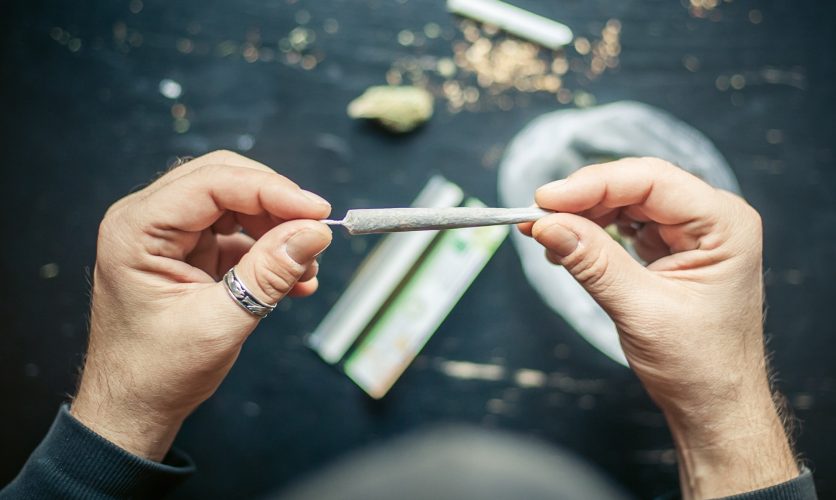Marijuana Dependency
Marijuana dependency is a real problem that affects many people. While research on marijuana use has advanced significantly in recent years, there are still risks associated with regular and sustained use. It is important for those who use marijuana to understand the risk of becoming dependent on it and be aware of suitable treatments.
What is Marijuana?
Marijuana is a psychoactive drug derived from the cannabis plant that causes physical and psychological effects. According to the National Institute on Drug Abuse (NIDA), an estimated 30% of marijuana users have some form of marijuana use disorder. Marijuana can be smoked, eaten, or vaporized and comes in various forms such as dried buds, oils, edibles, tinctures, and more. When an individual uses marijuana, cannabinoid receptors in the brain are activated by a neurotransmitter called anandamide. The greater the amount of tetrahydrocannabinol (THC) in marijuana, the stronger the effects of the marijuana.
Marijuana Use in the U.S. Statistics
Roughly 1 of every 10 individuals who use weed will become dependent.
For the people who start before age 18, the pace of compulsion ascends to 1 out of 6.
"Woodstock Weed" contained between 1% and 3% THC in the 1970s. From that point forward, the power of cannabis plant material has expanded to a specific strength of 18-23% today.
The average THC potency of THC concentrates in 2017 was 55.7%.
Today, numerous retailers advance and benefit from items containing up to 95-almost 100% THC.
What are the Risks of Marijuana Dependency?
Though marijuana is considered a relatively safe drug, it can lead to physical and psychological dependence. A person who uses marijuana regularly may become addicted or dependent on the drug's effects. This dependency can be both physical and psychological. Physical dependence can lead to withdrawal symptoms when the drug is stopped abruptly. In contrast, psychological dependence may cause a person to crave or obsess over the drug even when not actively using it.
Dependence vs. Addiction
Marijuana dependence happens when the brain is exposed to high doses of the drug and consequently produces less of its own endocannabinoid neurotransmitters. Individuals who are physically dependent on marijuana experience withdrawal symptoms when not taking the drug, which include irritability, mood and sleep difficulties, decreased appetite, cravings, and restlessness.
When one cannot stop using marijuana despite the fact that it negatively impacts many elements of their life, their marijuana use problem develops into an addiction, or marijuana use disorder.
What Causes Cannabis Use Disorder?
Marijuana dependency is often caused by regular and frequent use of the drug. It can be triggered by psychological and mental health factors, such as stress or depression, which lead to an increase in marijuana use in order to self-medicate. Additionally, there is evidence that suggests specific genetic pathways may play a role in developing marijuana dependency.
Common side effects of marijuana use disorder include:
Having difficulty stopping or reducing the amount used
Extreme cravings
Impairment
Developing a tolerance, where more is needed to get the same effects
Experiencing marijuana withdrawal symptoms when not using marijuana
Feeling the urge to use marijuana despite negative consequences
Common signs of marijuana overdose include:
Nausea and vomiting
Paranoia or anxiety and other mental disorders
Mind-altering hallucinations or delusions
Rapid heartbeat
Panic attacks
Seizures and other health problems
Psychosis: a loss of contact with reality
How is Marijuana Dependency Treated?
Marijuana dependency can be treated with a variety of techniques, depending on the individual's particular needs. These include cognitive-behavioral therapy, medication management, lifestyle modifications, and other forms of psychotherapy. Treatment is often tailored to meet the individual's needs and can be conducted in either an outpatient or inpatient setting. It is important to note that recovery from marijuana dependency does not happen overnight; it is a process that requires dedication and commitment. Additionally, according to research even after the initial symptoms have passed, continuing to work in a recovery program is essential to preventing relapse, especially in the first three years.
Overcome Marijuana Dependency with Caron Treatment Centers
At Caron Treatment Centers, we understand that addiction is a chronic and progressive disease. We provide personalized, comprehensive treatment options for individuals struggling with marijuana dependency in a supportive environment. Our highly-trained professionals utilize evidence-based detox practices to ensure successful recovery for each patient. We also offer family support services so loved ones can be involved in treatment. Our goal is to help individuals achieve long-term sobriety and live healthier, happier lives free from the grips of addiction.
Continue Learning About Marijuana Dependency
Take the next step:
Start a conversation
Start with an online form
-
Caron in Pennsylvania
1-800-854-6023 -
Caron in Florida
1-800-221-6500 -
Breakthrough at Caron
1-800-213-7834




